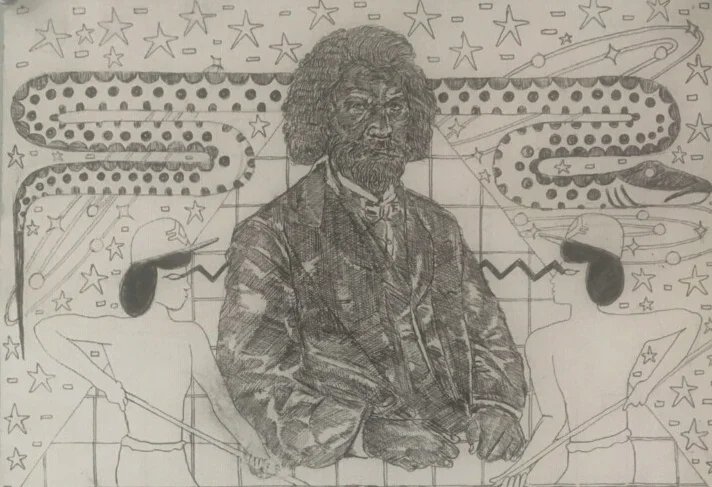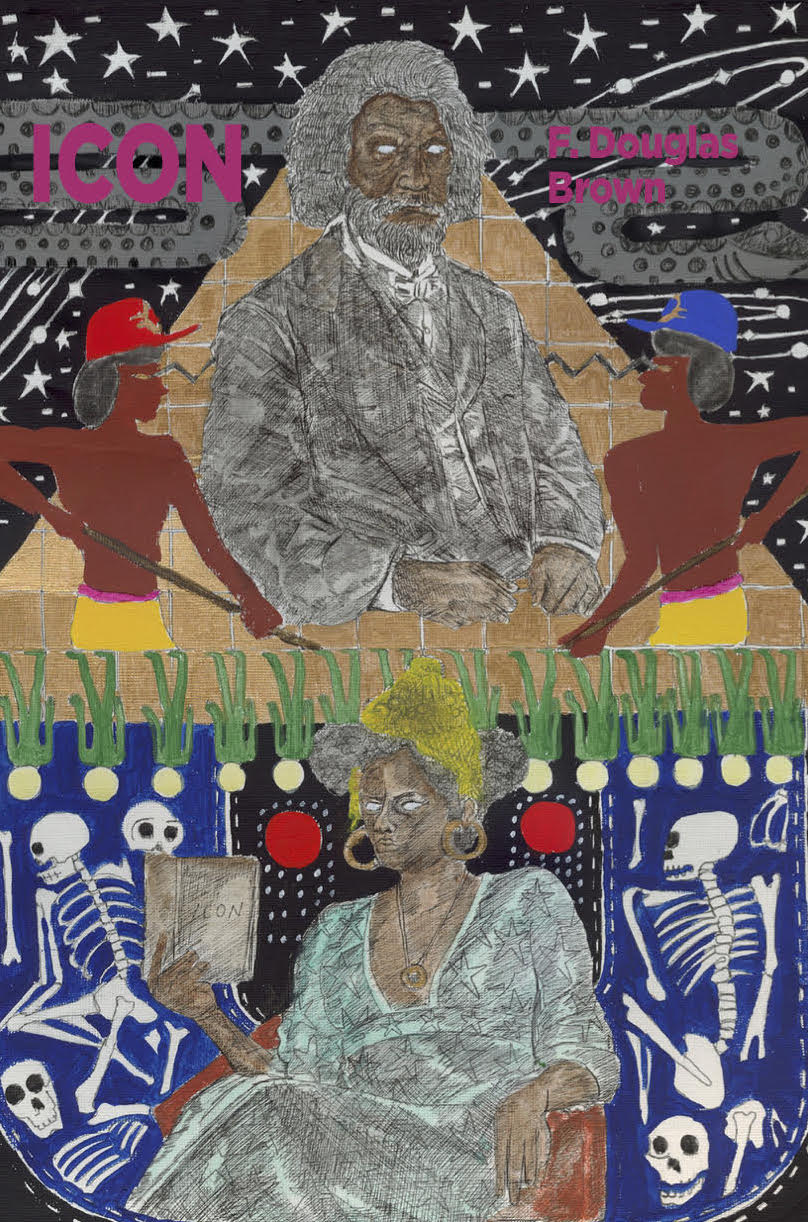Book cover image courtesy of Frohawk Two Feathers
ICON
(Writ Large Press)
Poems by F. Douglas Brown
F. Douglas Brown, inspired by Lawrence’s 1938 panel series, which observes both Frederick Douglass and Harriet Tubman, brings ICON, a biographical/poetic reflection doing the task of considering and re- considering role models, heroes. Through conversations with poets, pop stars, comic book sensations, and of course, the historical characters Douglass, Tubman and Lawrence, Brown distills this discussion into an examination of the self.
“Here is a poet who tracks a formidable lodestar in his chosen namesake, Frederick Douglass, and wrestles with his legacy through illuminative ekphrasis, dedicated truth-telling, and the indomitable will to claim one’s identity from a world that seeks to negate it. Writing with self-discovery through a multitude of form and historical insight, Brown charts a Tubmantrod course across millennia, culture, and language. Through his multihued blood-line that flows with memory to sing the kill away, we find ourselves delivered into a daring rendition of humanity at its best despite the worst of circumstances.”
“F. Douglas Brown’s ICON calls into its pages so many voices, living and dead, historical figures, ancestors, and coevals. The poet reminds us of the choral, even collaborative, nature of our poetic traditions. He composes image and language artifact of the Black diaspora, the American literary canon, and Philippine and Filipino-American history. This collection complicates any easy portrait of Harriet Tubman, Frederick Douglass, and their legacies, directly challenging our Western obsession with individual genius. All in all, ICON isn’t just a book of poems. It is a compendium of story, song, catalog, and remix. It is a much-needed reappraisal of our most convenient narratives around race. It is Black elegy. It is an intimate critique of American masculinity. It is astute commentary of visual culture. ICON is lyric autobiography, anti-hagiography, and new school testament. This is a book so rich that it is likely to move you and change you again and again.”
Press for ICON
- The Talking Book, audio of a few poems from ICON
- Interview with Nix Santos, of Woodbury University's 7500 Magazine


